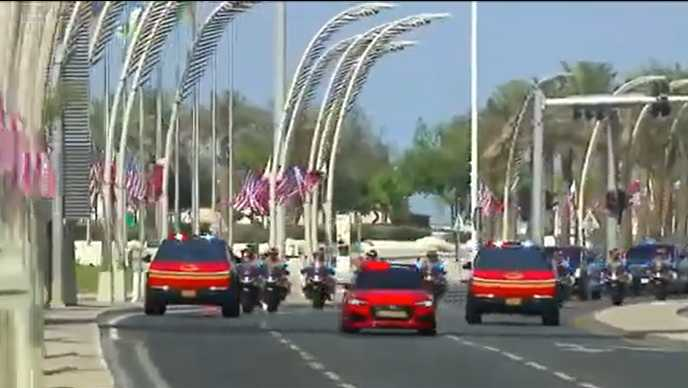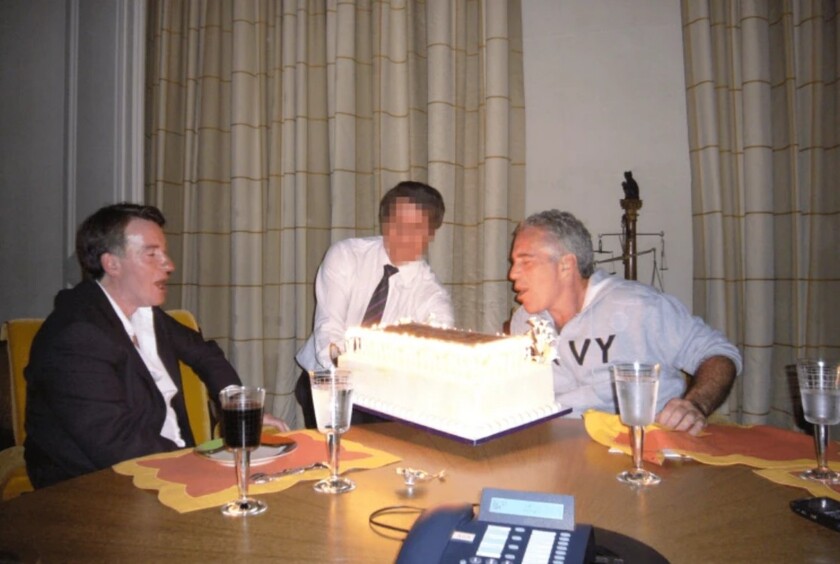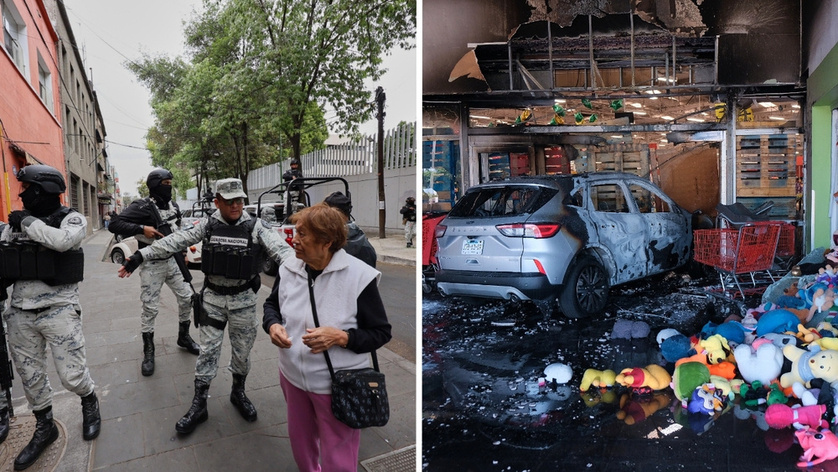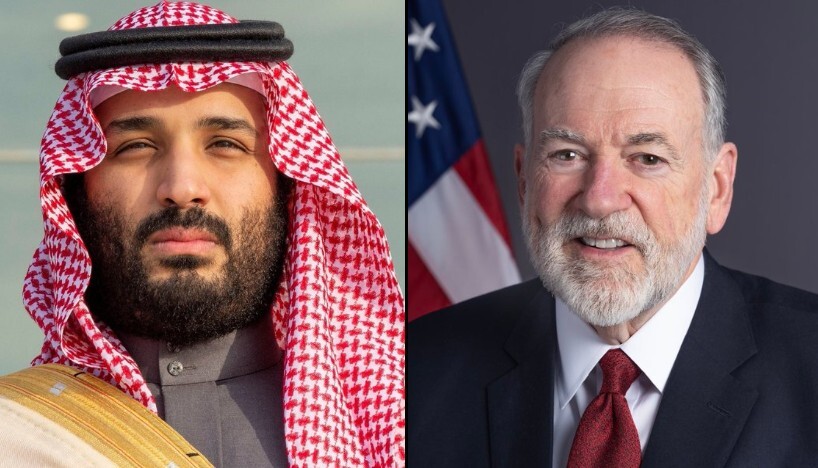U.S. President Donald Trump visited Doha, Qatar, and Abu Dhabi, UAE, as part of a four-day Middle East tour that also included Saudi Arabia. The trip, which concluded on May 15, focused on securing multibillion-dollar economic and defense deals, strengthening ties with Gulf allies, and addressing regional issues such as Iran’s nuclear program and the Gaza conflict.
Qatar signed a $200 billion deal to purchase 160 Boeing jets, described by Trump as “the largest order of jets in the history of Boeing.” This included up to 210 aircraft, notably Boeing 787 and 777x models. The deal is part of a broader $1.2 trillion economic exchange between the U.S. and Qatar, as reported by the White House.
Trump approved a $2 billion deal to sell eight MQ-9B Reaper drones to Qatar, along with hundreds of bombs, missiles, radars, and air defense systems, plus U.S. technical support. The Gulf state also committed $10 billion to invest in the Al Udeid Air Base, the largest U.S. military facility in the Middle East, which hosts U.S. Central Command. Defense purchases signed were valued at $42 billion, further deepening U.S.-Qatar security ties.
The U.S. president and Qatar’s Emir, Sheikh Tamim bin Hamad Al Thani, signed a joint declaration to enhance cooperation in trade, defense, and regional stability. The Emir described the agreements as elevating the U.S.-Qatar relationship to “another level.”
Trump expressed optimism about securing a nuclear deal with Iran, stating in Doha that Tehran had “sort of” agreed to terms and that negotiations were “very serious” for “long-term peace.” He emphasized preventing Iran from developing nuclear weapons, saying, “We’re not going to be making any nuclear dust in Iran.”
The U.S. president was warmly welcomed by the Qatari Emir, with a Cybertruck-led motorcade, a state dinner at Lusail Palace, and an honorary escort by Qatari F-15s for Air Force One.
During the state dinner in Doha attended by Tesla CEO Elon Musk and other top business leaders and U.S. officials, Trump expressed hope that Qatar could help the U.S. calm tensions with Iran over its nuclear ambitions, stating, "I hope you can help me with the Iran situation. It’s a perilous situation, and we want to do the right thing."
Trump reportedly reiterated his controversial proposal to “take” control of Gaza and transform it into a “freedom zone,” arguing there was “nothing left to save” due to widespread destruction. He suggested U.S. involvement in redeveloping Gaza, a plan he first pitched in February. He claimed to have “concepts for Gaza that I think are very good,” envisioning it as the “Riviera of the Middle East.”
Qatar’s Emir and Prime Minister raised the need for a Gaza ceasefire. Israel’s ongoing blockade and planned offensive, including a U.S.-backed food ration plan opposed by U.N. agencies, complicated ceasefire efforts.
Trump participated in a roundtable with U.S. and Qatari business leaders, including Boeing, Lockheed Martin, and General Dynamics CEOs.
Addressing U.S. troops later, Trump lauded the $1.2 trillion in deals, and cracked jokes with the troops who were also later entertained by American comedian Theo Von.
Trump was later welcomed to Abu Dhabi, United Arab Emirates(UAE) where he praised President Sheikh Mohamed bin Zayed Al Nahyan, emphasizing the strong and growing relationship between the two countries.
The U.S. president announced deals with the UAE totaling over $200 billion, including a $14.5 billion commitment from Etihad Airways to invest in 28 Boeing 787 and 777x aircraft powered by GE Aerospace engines
The U.S. and UAE agreed to deepen cooperation in artificial intelligence, with the UAE seeking to become a global leader in AI
Both countries also signed a partnership to build a 5-gigawatt AI data center complex in Abu Dhabi, capable of powering a major city, positioning the UAE as a global AI hub.
Emirates Global Aluminum pledged $4 billion for a primary aluminum smelter in Oklahoma, and ExxonMobil, Occidental Petroleum, and EOG Resources partnered with ADNOC for $60 billion in oil and gas production.
The UAE reiterated a $1.4 trillion investment plan in the U.S. over the next decade, first announced in March 2025, focusing on AI, energy, and manufacturing. Trump praised this commitment, referencing a visit by Sheikh Tahnoon bin Zayed Al Nahyan, the UAE’s national security adviser.
Trump rescinded Biden-era curbs on advanced technology exports, enabling the UAE to access U.S.-made microchips and AI systems critical for its 2031 AI leadership goal.
The president again reiterated his commitment to preventing Iran from acquiring nuclear weapons, warning of a “violent course” if diplomacy failed but expressing preference for a “friendly” deal.
The UAE, supportive of U.S.-Iran nuclear talks (unlike during the Obama era), expressed concerns about Iran’s nuclear program and potential regional escalation. President Al Nahyan emphasized continued collaboration with the U.S. for regional peace, particularly in Gaza. Trump’s Gaza “freedom zone” proposal was not publicly emphasized in Abu Dhabi, likely due to regional sensitivity and ongoing Israeli operations.
Trump attended a state dinner at Qasr Al Watan, where he was awarded the Order of Zayed, the UAE’s highest civilian honor. He praised the UAE’s “gleaming marvels” and described the Sheikh Zayed Grand Mosque as a “great tribute” after a private tour.
The U.S. president met Sheikh Mohamed, reinforcing the U.S.-UAE partnership. He expressed confidence that ties would “only get bigger and better,” citing the UAE’s $1.4 trillion pledge.
Trump was greeted with a fighter jet escort, a traditional Al-Ayyala performance, and a military honor guard, underscoring the UAE’s lavish welcome.
The U.S. president's trip to the Middle East is primarily focused on business and economic deals, reflecting his administration's emphasis on leveraging the region's wealth for U.S. economic benefit. The tour secured over $2 trillion in deals across Saudi Arabia, Qatar, and the UAE, with Qatar and UAE alone contributing over $1.6 trillion in investments. These spanned AI, energy, defense, and aviation, aligning with Trump’s transactional foreign policy.
The deals bolstered U.S. companies like Boeing and GE Aerospace while positioning Gulf states as key players in global AI and energy markets.
Trump’s meetings with Gulf leaders and Syria’s new president signaled a shift toward pragmatic alliances, including easing sanctions on Syria and uncoupling Saudi nuclear talks from Israel normalization.
His decision to skip Israel, amid tensions with Prime Minister Benjamin Netanyahu and Gaza’s escalation, underscored a focus on Gulf economic ties over traditional U.S.-Israel alignment.















